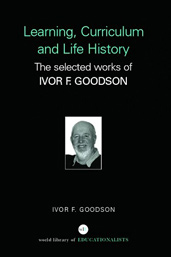Learning, Curriculum and Life Politics: the selected works of Ivor F. Goodson
Nations at Risk
In fact the experience of this episode of state intervention had long-lasting effects. In 1944 when the Government was drawing up the influential Education Act of that year James Chuter Ede, parliamentary secretary to the Minister, said in a speech to the House:
... there is not one curriculum for every child, but every child must be a separate problem for the teacher. The teacher is the servant of the State, and I hope that no one will say that the State should lay down the curriculum of the schools. Some of us were brought up under the old payment-by-results system, and were the time earlier, I could amuse the House with descriptions that some of my Hon. friends know would be no caricature of the way in which State control of the curriculum prevented the development of a wise and sound system of education (Chitty, 1988).
Holmes and Chuter Ede then warn us of some of the dangers that attended a 'national curriculum and assessment' strategy. But the implications for teachers and particularly pupils are of profound concern. The development of attitudes of 'mechanical obedience' strike at the very heart of the 'democratic' system of governance. This matter assumes great importance at a time when there is widespread comment in the UK about the absence of constitutional rights and the consequent possibility of substantial erosion of 'traditional' rights by more authoritarian government whether of the right (as at the moment) or of the left. The link between the national curriculum and mechanical obedience therefore highlights a major problem with regard to the education of pupils with the capacity to be functioning citizens in a democracy. I find the following statement about 'the erosion of British liberty' particularly chilling in this light: 'Britons have been schooled to think of themselves as subjects, not citizens; as people with freedoms granted by government, not with rights guaranteed against government interference' (Broder, 1989). The traditional school subject based National Curriculum plays a key role in constructing the particular subjectivities of subjects in this sense (Corrigan, 1990).
Seen in this light the political project underpinning the national curriculum assumes a further dimension, for the hidden curriculum of the national curriculum is a reassertion of the power of the state in nation-building. This project is diametrically opposed to the alternative project of educating pupils, from a plurality of cultures, for active citizenship in a democracy. The history of mass mechanical obedience as a bedrock for nation-building is well known, but it leads not to democracy but to totalitarianism.
